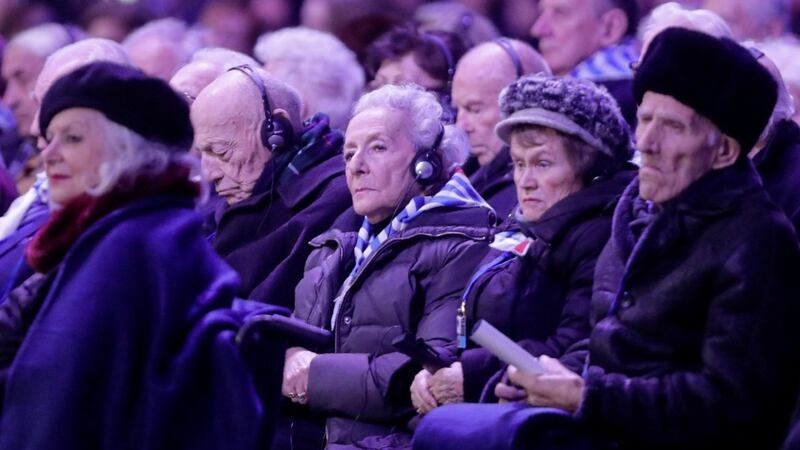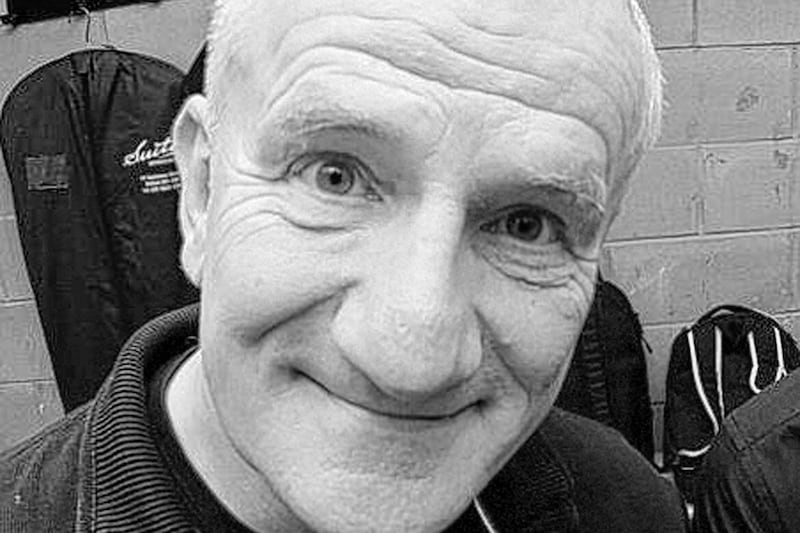LAST Monday marked the 75th anniversary of the liberation of Auschwitz in 1945. On the day the Russian army liberated the camp, they found 7,000 prisoners, many of whom were ill or dying. In the five years the camp had operated, it’s estimated 1.3 million people were imprisoned there, with 1.1 million being murdered by the Nazi regime.
I first became aware of Auschwitz when I read If This Is A Man, the account of a year spent in the concentration camp by one of it’s survivors, Primo Levi. In a world where far-right groups are once again gathering in strength, the books of Primo Levi should be made part of every school curriculum.
Thirty years after reading the book, I visited the camp. What first stuck me was the absolute silence – no bird sang, no dog barked, nothing alive encroached on this patch of death. Every step seemed to open up another vista on the brutality of humanity.
The dreaded red-brick torture buildings, where prisoners were packed so close into a bricked-up corner that they suffocated. The infamous execution wall, where thousands were summarily shot at the whim of their torturers. And then the mountains of belongings robbed from helpless detainees as they were marched to their deaths in the gas chambers.
A small mountain of reading glasses, tangled and intertwined, viscerally brought home the monumental loss of life and suffering perpetrated in this hell on Earth.
Of the 789 staff who operated the death camp, around only 15 per cent ever faced justice, the vast majority returning to live out their lives in Germany. Of the few who were held to account, the most notorious was the sadistic commandant, Rudolf Hoss, who was hanged at the gates of the camp he once ran with vicious brutality.
This 75th anniversary may be the last time the few survivors still living will return to the camp to commemorate their liberation. And while their bravery in returning to a place resonant with such pain is beyond doubt, it is beholden on us all to ensure their suffering is never forgotten.
In the depraved darkness of the Nazi years a few small lights of hope burned bright. While the world knows of the efforts of Oskar Schindler due to the film Schindler’s List, made by Steven Spielberg starring our own Liam Neeson, for 50 years no-one knew the name Nicholas Winton.
An unassuming English stockbroker, Winton realised the severity of the coming storm and initiated what became known as the Czech Kindertransport. In his own understated way, Winton replicated the actions of Schindler, saving the lives of 669 Jewish children by transporting them, in 1939, from Czechoslovakia to be rehomed in the UK. In so doing, he saved them from certain death in concentration camps such as Auschwitz.
After his nine months of frantic activity, Winton went back to his normal life and never mentioned his wartime work. The children he saved grew up never knowing the name of their saviour, and this is how it would have remained were it not for Winton’s wife, Grete, who found a dusty box of documents in their loft.
Finally, fate decreed that his work during the war would be known. Not that Winton realised any of this when he was invited on to Esther Rantzen’s show, This Life, in 1988.
As he sat in the audience, the story of his heroism was revealed to the world as Rantzen opened the book his wife had found in their attic. In it were names and photographs of the children he’d saved. Pointing to the image of a young girl, Rantzen said she’d managed to find that same little girl – now a middle-aged woman – and told an obviously shocked Winton he was sitting beside her.
The woman embraced a tearful Winton before Rantzen asked if anyone else in the audience owed their lives to Nicholas Winton. Suddenly, dozens of people sitting around the old man stood up. If you’ve never seen this clip I urge you to look it up; it has to be one of the most moving moments ever captured on television.
In a world of self-aggrandising presidents, who bellow their greatness, a humble man for 50 years managed to conceal the fact that he had saved the lives of 669 children.
Fate refused to accept Winton’s humility, and by allowing him to live to the age of 105, saw him receive a knighthood and be justly recognised and honoured by the whole world.
Lest we forget.









